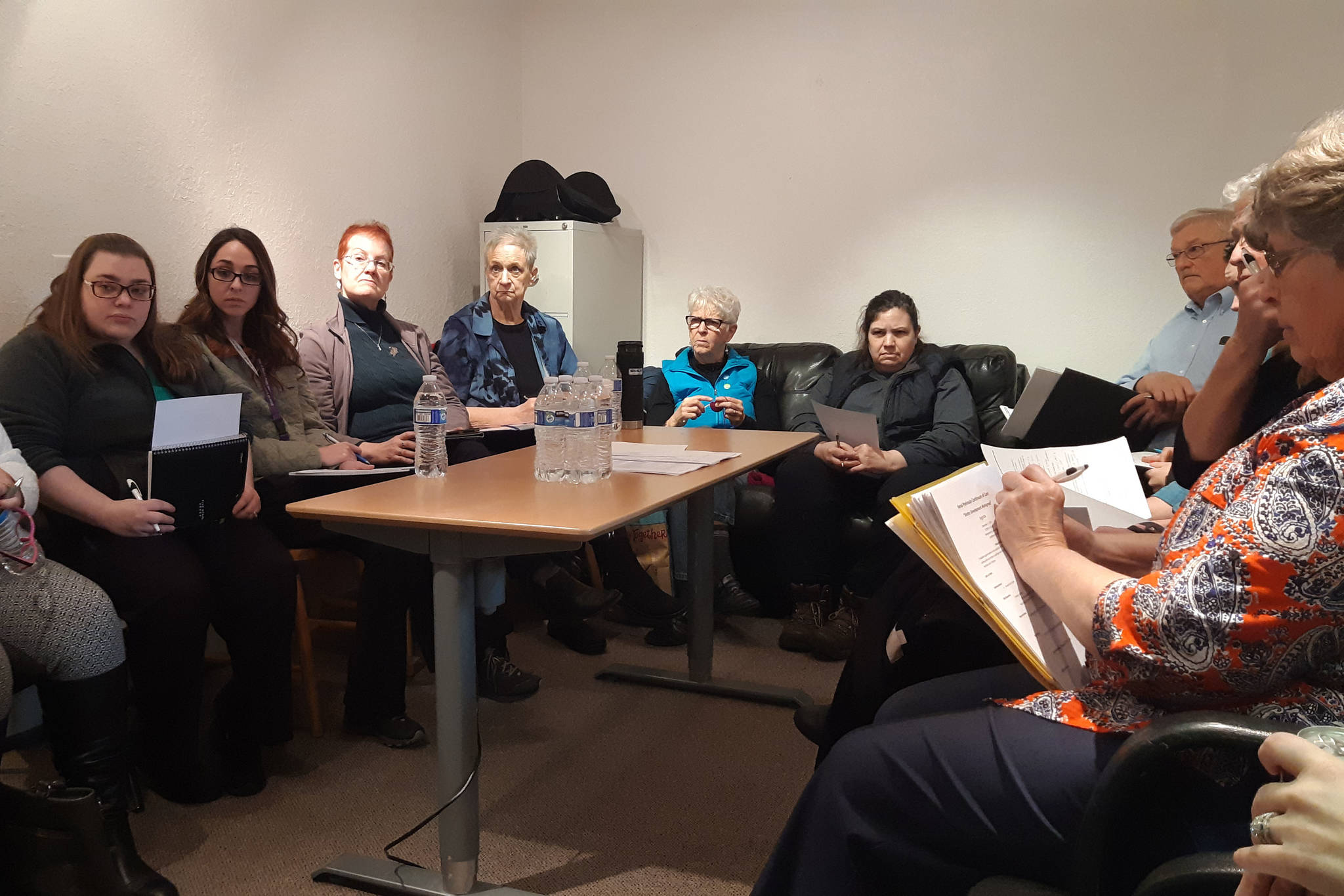Fresh off a weekend of training volunteers, the peninsula residents hoping to start an emergency shelter on the peninsula are now looking to city and borough officials to confirm that the participating churches are up to code.
The Shelter Development Workgroup met on Tuesday at the Independent Living Center in Kalifornsky to discuss their progress. During the discussion it was clear that the next step would require involvement from local government officials. The group hopes to start an emergency cold-weather shelter on the Kenai Peninsula that would provide homeless families a warm place to sleep and meals on nights when the temperature in Kenai drops below 20 degrees Fahrenheit.
The plan involves support from local churches, with each participating church assigned a day of the week for which they would need to provide the shelter. Love, INC’s executive director Leslie Rohr said on Tuesday that six churches have currently signed up: Soldotna United Methodist Church, Christ Lutheran Church in Soldotna, Kenai United Methodist Church, Peninsula Grace Church, North Star United Methodist Church and Star of the North Lutheran Church.
Now that six of the seven days of the week are covered, the work group wants to ensure that operating an emergency shelter out of a church does not run into any zoning or building code issues with either the Kenai Peninsula Borough or the cities of Kenai and Soldotna. John Czarnezki, director of planning and economic development for the City of Soldotna, attended Tuesday’s meeting and said when it comes to potential zoning issues, the churches within Soldotna City limits are in the clear.
All of the churches within Soldotna are located within an “institutional” zoning district, Czarnezki said, and other permitted uses inside institutional zones already include emergency shelters.
“As far as zoning codes are concerned, there aren’t any special prohibitions,” Czarnezki said. “You wouldn’t have to jump through a conditional use permit or anything to that effect.”
The building codes, however, could be a different story. Czarnezki said that any shelter, regardless of location, needs to meet a few general guidelines: windows and doors that can provide ingress and egress, smoke and carbon dioxide detectors, a clearly marked exit and direct access to the outside of the building.
The need for direct access outside was a sticking point for some of the church leaders in attendance at the meeting.
“I don’t know of any church that has that,” Soldotna United Methodist Pastor Karen Martin Tichenor said.
Czarnezki said that for more definitive answers on whether or not the churches could legally operate as a shelter, the participating churches should arrange a walk-through with the city building officials as well as the local fire marshal. Rohr agreed and said that needs to be done before they get the shelter up and running.
Another point of discussion that arose during Tuesday’s meeting was the target demographic of the shelter. Rohr said that, from the onset of this project, the priority has been to provide shelter to homeless families and children. During volunteer training on Friday, a Soldotna police officer brought up the fact that most of their interactions are with homeless individuals, primarily men.
To that end, the workgroup discussed the possibility of providing shelter for individuals as well. LeeShore Center Executive Director Cheri Smith said that while they don’t want to turn anyone away, allowing both families and individuals to stay at the shelter would make the logistics more complicated. Men and women would need to be housed in different rooms for safety reasons, Smith said, and not all of the churches that have signed up can accommodate that.
Cami Zifko, director of Friendship Mission in Kenai, offered a potential alternative to the question of individuals versus families and said that she could take the men who need overnight shelter.
Zifko said that as long the individuals have been cleared through Love, INC’s screening process and can be transported to Friendship Mission, they can stay overnight without participating in the Mission’s full program. Friendship Mission currently has five open beds and doesn’t often reach capacity, Zifko said.
The group agreed that this would be an acceptable, albeit temporary, solution.
The Shelter Development Workgroup will be meeting again on Jan. 8 at noon at the Kenai Public Health Center.

